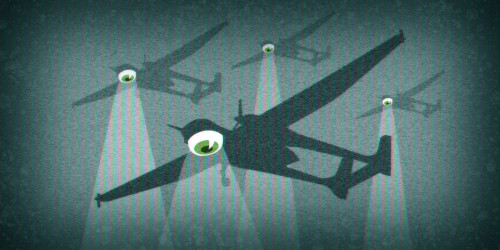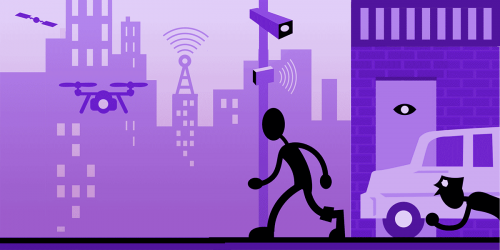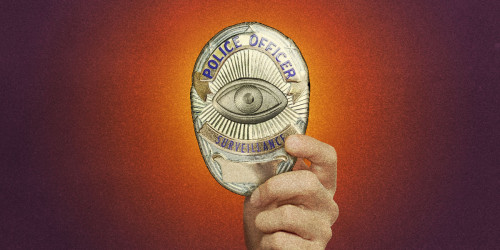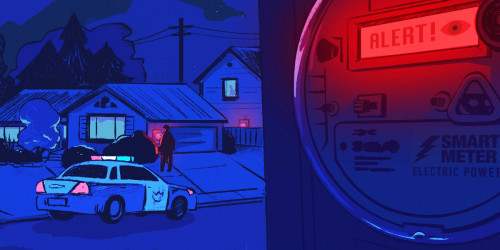Flock Safety, the police technology company most notable for their extensive network of automated license plate readers spread throughout the United States, is rolling out a new and troubling product that may create headaches for the cities that adopt it: detection of “human distress” via audio. As part of their suite of technologies, Flock has been pushing Raven, their version of acoustic gunshot detection. These devices capture sounds in public places and use machine learning to try to identify gunshots and then alert police—but EFF has long warned that they are also high powered microphones parked above densely-populated city streets. Cities now have one more reason to follow the lead of many other municipalities and cancel their Flock contracts, before this new feature causes civil liberties harms to residents and headaches for cities.
In marketing materials, Flock has been touting new features to their Raven product—including the ability of the device to alert police based on sounds, including “distress.” The online ad for the product, which allows cities to apply for early access to the technology, shows the image of police getting an alert for “screaming.”
It’s unclear how this technology works. For acoustic gunshot detection, generally the microphones are looking for sounds that would signify gunshots (though in practice they often mistake car backfires or fireworks for gunshots). Flock needs to come forward now with an explanation of exactly how their new technology functions. It is unclear how these devices will interact with state “eavesdropping” laws that limit listening to or recording the private conversations that often take place in public.
Flock is no stranger to causing legal challenges for the cities and states that adopt their products. In Illinois, Flock was accused of violating state law by allowing Immigration and Customs Enforcement (ICE), a federal agency, access to license plate reader data taken within the state. That’s not all. In 2023, a North Carolina judge halted the installation of Flock cameras statewide for operating in the state without a license. When the city of Evanston, Illinois recently canceled its contract with Flock, it ordered the company to take down their license plate readers–only for Flock to mysteriously reinstall them a few days later. This city has now sent Flock a cease and desist order and in the meantime, has put black tape over the cameras. For some, the technology isn’t worth its mounting downsides. As one Illinois village trustee wrote while explaining his vote to cancel the city’s contract with Flock, “According to our own Civilian Police Oversight Commission, over 99% of Flock alerts do not result in any police action.”
Gunshot detection technology is dangerous enough as it is—police showing up to alerts they think are gunfire only to find children playing with fireworks is a recipe for innocent people to get hurt. This isn’t hypothetical: in Chicago a child really was shot at by police who thought they were responding to a shooting thanks to a ShotSpotter alert. Introducing a new feature that allows these pre-installed Raven microphones all over cities to begin listening for human voices in distress is likely to open up a whole new can of unforeseen legal, civil liberties, and even bodily safety consequences.












